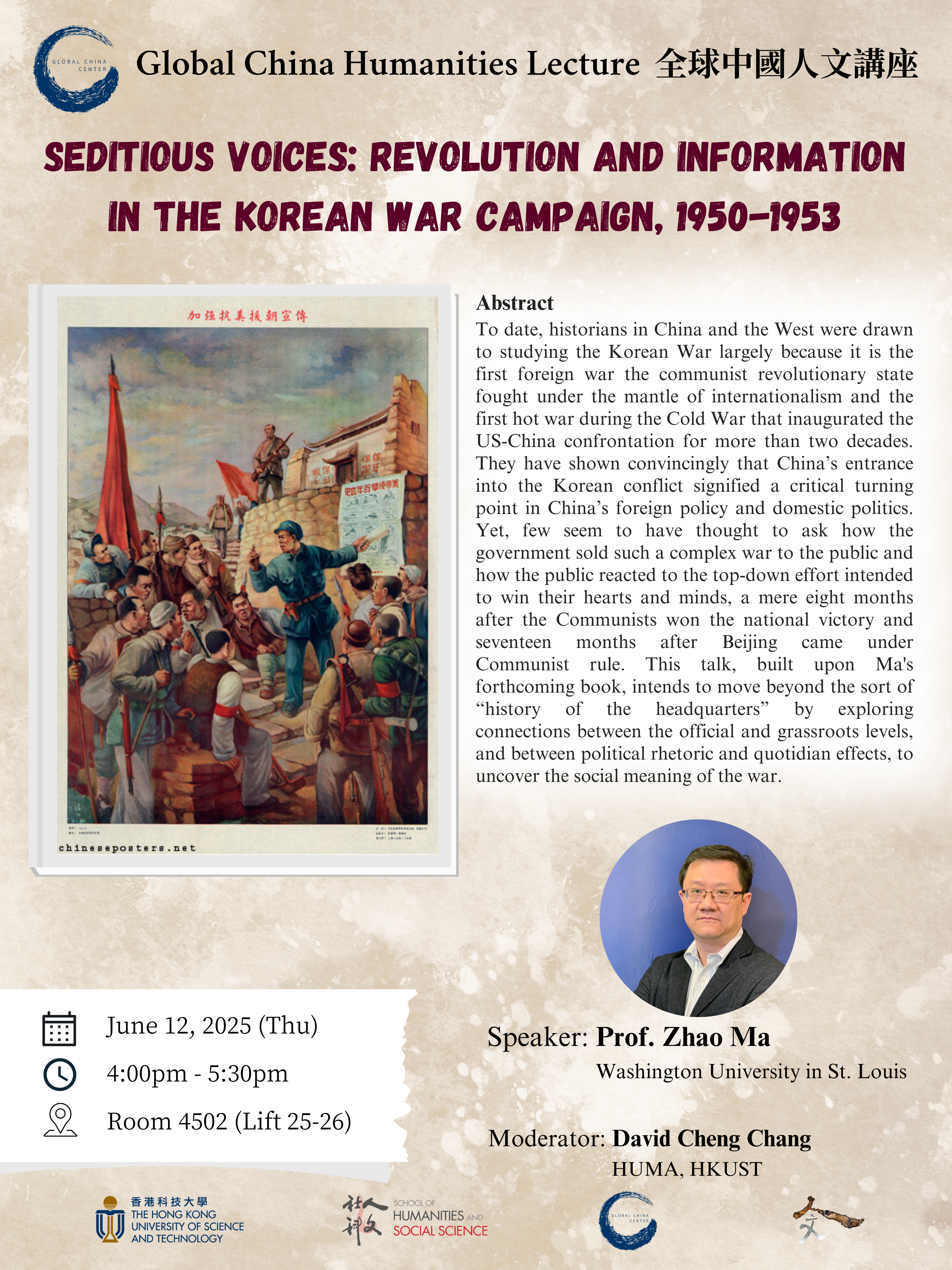Speaker: Prof. Zhao Ma, Washington University in St. Louis
Moderator: Prof. David Cheng Chang, HKUST

Abstract
To date, historians in China and the West were drawn to studying the Korean War largely because it is the first foreign war the communist revolutionary state fought under the mantle of internationalism and the first hot war during the Cold War that inaugurated the US-China confrontation for more than two decades. They have shown convincingly that China’s entrance into the Korean conflict signified a critical turning point in China’s foreign policy and domestic politics. Yet, few seem to have thought to ask how the government sold such a complex war to the public and how the public reacted to the top-down effort intended to win their hearts and minds, a mere eight months after the Communists won the national victory and seventeen months after Beijing came under Communist rule. This talk, built upon Ma's forthcoming book, intends to move beyond the sort of “history of the headquarters” by exploring connections between the official and grassroots levels, and between political rhetoric and quotidian effects, to uncover the social meaning of the war.
Bio
Zhao MA is a social and cultural historian at Washington University in St. Louis. His research and teaching focus on the culture and politics of the Chinese revolution, political communication, and the history of US-China relations. His first book, Runaway Wives, Urban Crimes, and Survival Strategies in Wartime Beijing, 1937-1949, was published by Harvard University Asia Center in 2015. It uses criminal case files to explore lower-class women’s role in remaking wartime Beijing’s social and moral order. He is currently finishing a new book, Seditious Voices in Revolutionary China, 1950-1953. It examines political propaganda during the Korean War campaign and offers a lens to study the transformation of urban informational space against the backdrop of war and emerging revolutionary politics in Mao’s China.